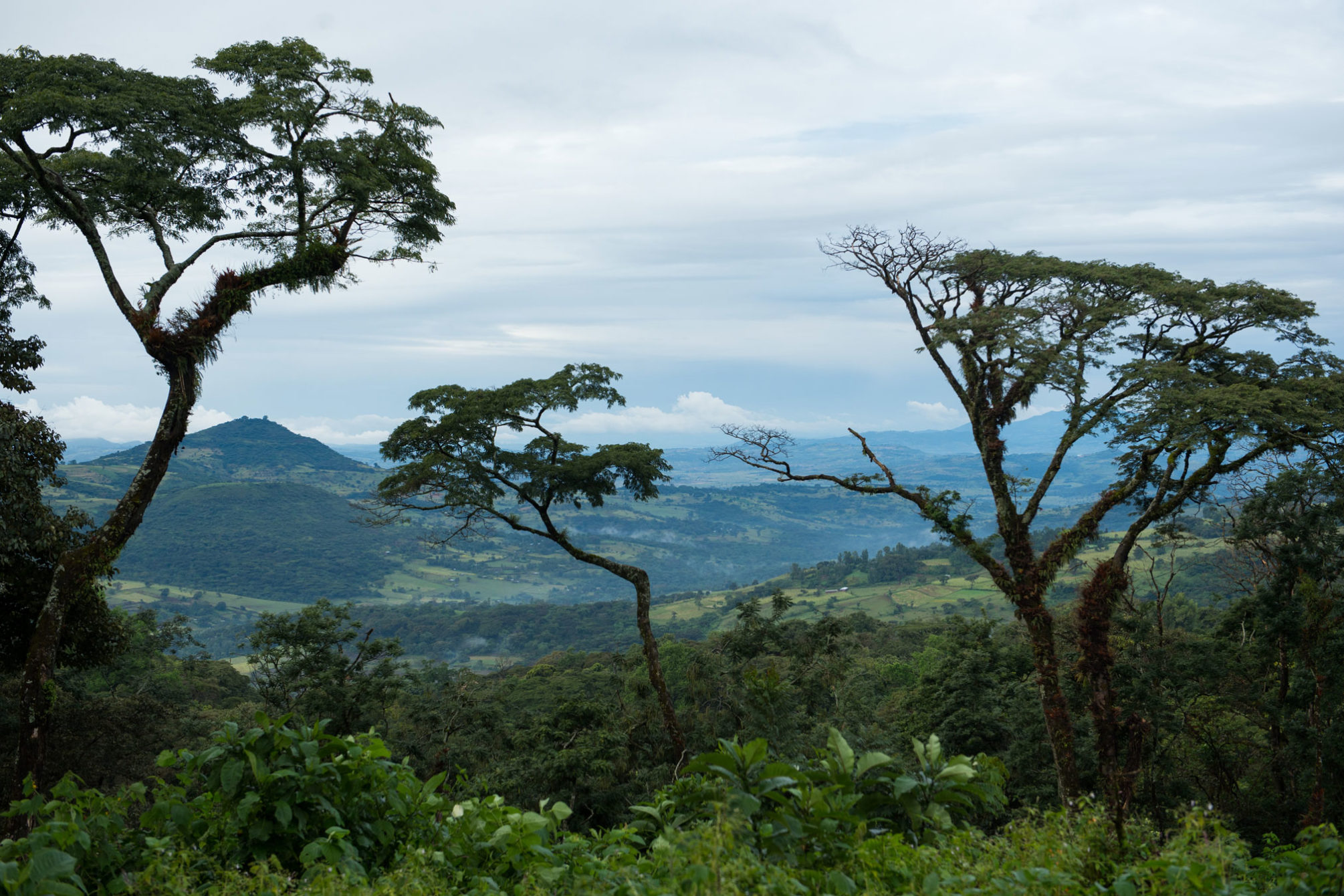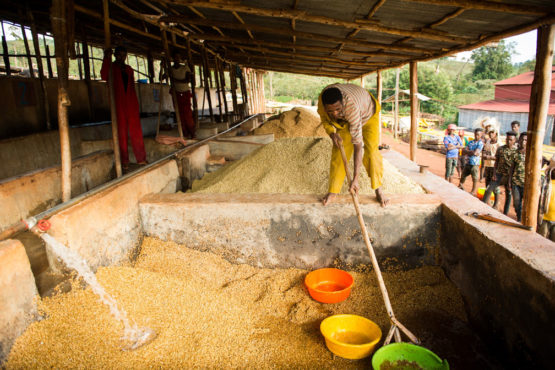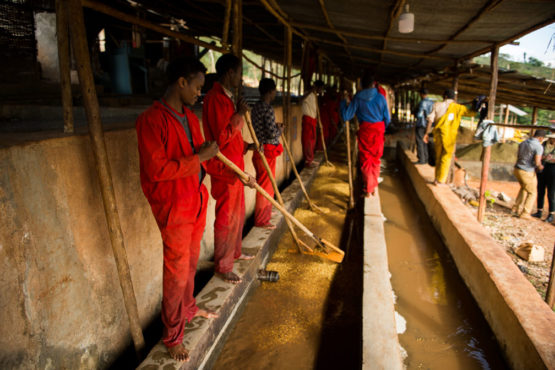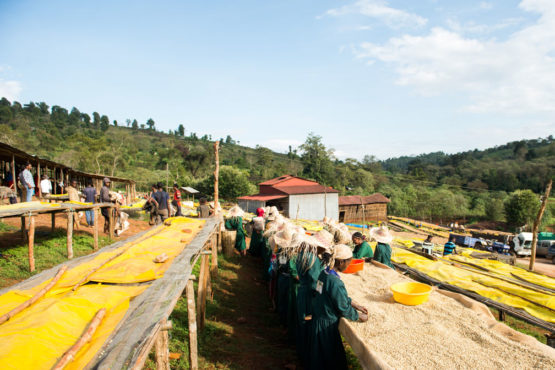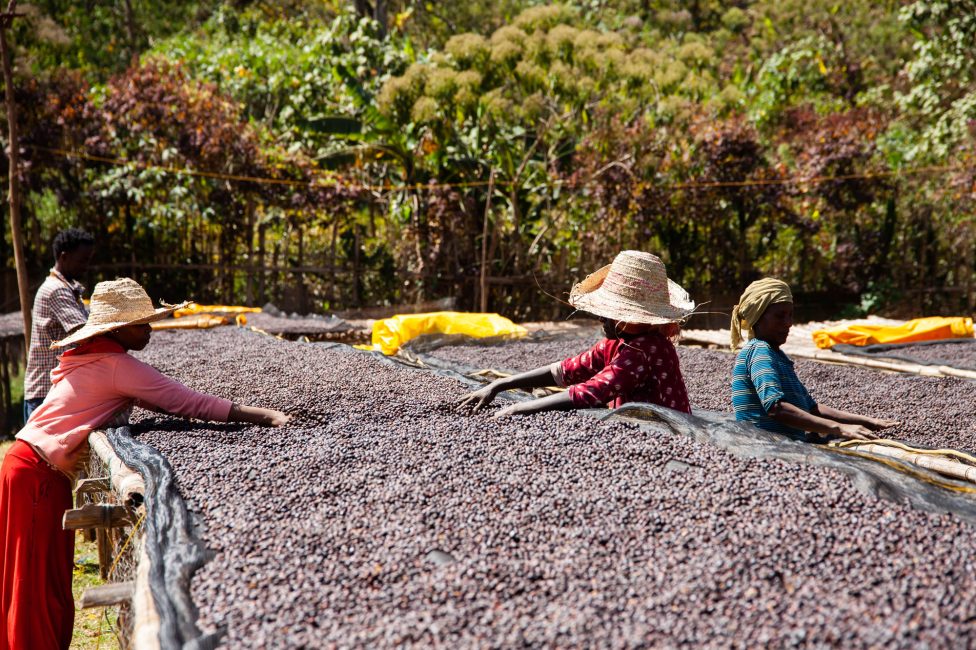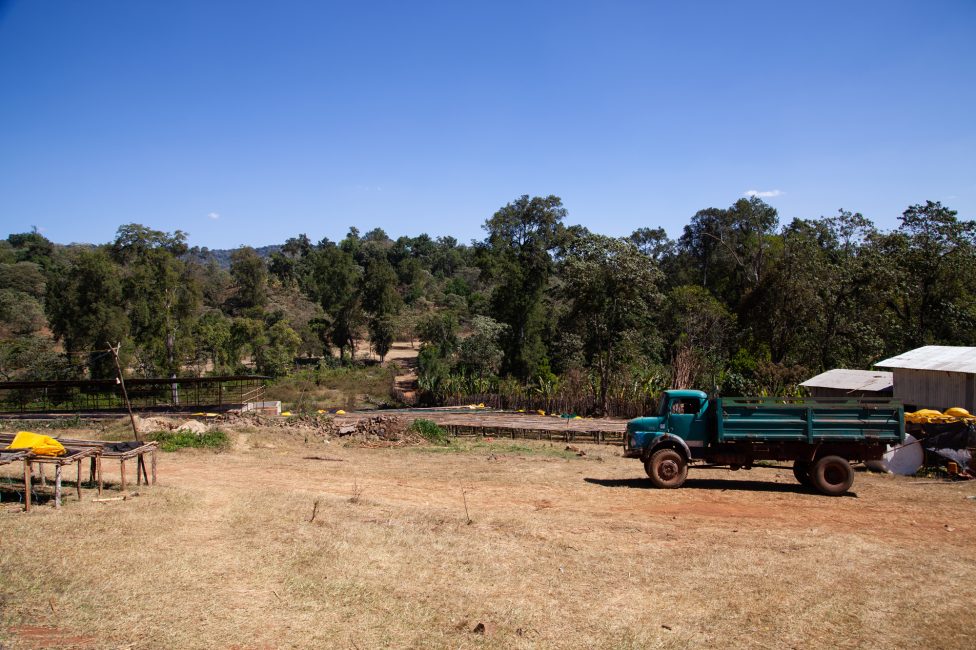Burka Gudina
Orange marmalade, nougat and red apple with black tea and walnut on the finish. Sweet and balanced.
Ibrahim Hussien is the owner of a 200-hectare farm in Limu Kossa, which is located in the Djimmah zone in the South Western highlands of Ethiopia’s the Oromia State.
Ibrahim is a third generation coffee producer. His grandfather walked from walked from Wollo to Limu to begin growing coffee in the 1930s, and today Ibrahim continues this legacy. Ibrahim purchased his 200 hectare farm over ten years ago, and named the land Burka Gudina which translates to “Where the blessings grow”. He grows his coffee without added pesticides, chemicals or synthetic fertilizers under the shade of native trees, which provide an important habitat for the native animals and helps maintain the biodiversity in the area.
VARIETY
This coffee is a mix of local varieties, including native coffees from forest origin that are collectively known as ‘Ethiopian Heirloom’. All of these varieties are Arabica and most originate from a Typica predecessor, but with wild mutations that result in some exceptional and unique flavour profiles.
PROCESSING
This coffee was picked and processed at Burka Gudina’s wet mill which is located on the estate at 1,850m above sea level. 120 seasonal worker are employed during the harvest to carefully hand pick the coffee, doing multiple passes throughout the season to ensure only the very ripest cherries are selected.Coffee cherries are delivered daily to the station from Burka Gudina Estate, as well as their 200 out-grower partners, who each have around 2–3 hectares of land located at 1,800–1,900m above sea level in the immediate region.
This particular lot from Burka Gudina is washed and classified as Grade 1, indicating that a lot of effort has been put into the selection, grading and drying to ensure the very highest quality coffee is produced.
As coffees are delivered to the mill they are meticulously hand-sorted prior to processing to remove unripe, overripe, or damaged fruit, in order to enhance the quality and sweetness of the cup. The coffee cherries are then pulped to remove the fruit and skin, and then graded by weight; heavier beans are superior quality and deliver a sweeter cup. After grading, the parchment-covered coffee is soaked in tanks of clean water for 48-72 hours to remove the mucilage (sticky covering) by allowing it to ferment and detach from the coffee.
The coffee is then re-washed and graded again by density in washing channels and soaked in clean water for 12–24 hours. The coffee is then dried for 12-15 days on African drying beds, firstly under cover and then subsequently in the sun. Whilst drying, the coffee is carefully hand-sorted, and any defects are removed. It is also turned regularly to ensure that it dries evenly and consistently. At midday, the coffee is covered to protect it from full sun. It is also covered overnight to prevent damage from morning dew. Once the coffee is dry it is rested in parchment until it is ready for export.
